Let Nicholas Kristof Damage Your Mind
In a late 2012 PBS series called "Half the Sky: Turning Oppression into Opportunity for Women Worldwide," the lauded New York Times columnist and professional flake "glosses" the harmful "utopian vision" of free-market globalization sold to Americans in a 1980 television broadcast by neoliberal economist Milton Friedman, Anne Elizabeth Moore writes in The Baffler.In an October PBS series, the lauded New York Times columnist and professional flake "glossed" Milton Friedman's harmful and dishonest "utopian vision" of free-market globalization.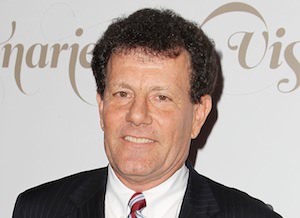
In a late 2012 PBS series called “Half the Sky: Turning Oppression into Opportunity for Women Worldwide,” lauded New York Times columnist and professional flake Nicholas Kristof “glosses” the dishonest and demonstrably harmful “utopian vision” of free-market globalization sold to Americans in a 1980 television broadcast by neoliberal economist Milton Friedman, Anne Elizabeth Moore writes in the summer 2013 issue of The Baffler.
Friedman’s film “Free to Choose” was a televised counterpoint to liberal economist John Kenneth Galbraith’s PBS series “The Age of Uncertainty.” “In ten hour-long episodes,” Moore notes, the “kindly seeming yet fire-breathing” Friedman “laid out the principles of what came to be called Reaganomics — and later, the globalized order of neoliberal free trade.”
Friedman’s effect on global political economy was not small. “A year after the show’s first broadcast,” Moore explains, “with Friedman acting as unofficial economic adviser to the newly elected president — [Ronald] Reagan met with U.K. prime minister Margaret Thatcher; the two world leaders entered their own special relationship … busting unions, slashing taxes, and privatizing substantial parts of the public sector. The alliance was merely the first and highest profile affirmation of Friedman’s new world order. Today, leaders of former socialist and communist states commonly claim that Free to Choose furnished the conceptual building blocks for their reforms.”
“To grasp the full reach of Friedman’s legacy,” Moore continues, “we need to reckon with something … banal [and] terrifying: Free to Choose gave America a new guiding consensus, the common-sense view among conservatives and liberals alike that market regulation unfairly limited the potential for liberation throughout the world. Impervious to logic and fact, and viral before viral media existed, Free to Choose forged a new cultural accord on the uncontested reign of the market that had not yet existed in quite this way before.”
That banal and terrifying artifact is Kristof’s October 2012 PBS series, “Half the Sky.” “Kristof,” Moore writes, “might at first blush seem an unlikely standard-bearer for the Friedman televisual tradition — but that is exactly the point. After three decades of steady high-market consensus in American culture and politics, the formerly doctrinaire libertarian Friedman and the putatively pragmatic liberal Kristof are now advancing the same policy objectives.”
“Half the Sky presents a litany of reforms tailored for a market-besotted (but, you know, concerned) viewing public,” Moore continues. “The show focuses obsessively on a distinctly Westernized notion of education (and the entrepreneurial opportunities that duly market-reformed schools provide), casts state-crafted barriers to market freedom as human rights issues, and understands women and girls in terms of ‘untapped’ economic returns.” Kristof conspicuously “displays a chronic lack of interest in women’s lived experiences under conditions of poverty.”
If at this moment we need a reminder of Kristof’s history of crushing the public welfare as a “parroter of free-market dogma,” we need only recall that he has, “[f]rom his prestigious perch in the [Times’] opinion section … downplayed the grievances of striking workers, single-handedly revitalized the Welfare Queen scare, and thumped the tub for neoliberal education reform, i.e., the gradual privatization of the American public school system.”
A People magazine-reading and Oprah Winfrey-viewing public is assured of the virtue of Kristof’s message by the appearance of movie star George Clooney, who opens the series. “Nick is the guy doing the legwork,” Clooney proclaims before explaining that celebrities like him can only “amplify the story.” (The actor, Moore points out, “earns close to a full percentage point of Sierra Leone’s entire GDP from his film work alone” and thus could do more if he wanted.)
Another veneer of credibility is given to the program by its list of private funders: the John D. and Catherine T. MacArthur, Ford, Bill and Melinda Gates, IKEA, and Nike foundations as well as Goldman Sachs’ 10,000 Women initiative. The hypocrisy is nauseating. All of the groups, Moore writes, are “philanthropic arms of businesses that have derived enormous profits by taking advantage of some of the same women in developing nations we meet over the ensuing four hours” of the program.
The two-part show consists of six, 46-minute segments, “each filmed in a developing nation now struggling to emerge from recent geopolitical and human rights conflicts. Each installment boasts a celebrity guest, a host activist, and a star victim.”
The stories told are often full of holes. In the segment filmed in Cambodia, actress Meg Ryan and local activist Somaly Mam “join Kristof in saving victims of sex trafficking. Much of the episode focuses on a woman named Somana” who “has served as a high-profile symbol of the human trafficking problem in Cambodia.” Research suggests the story Somana told on the show — about losing an eye in a stabbing by a brothel owner and being banished from her home by her parents — is a lie, as does an earlier account of her story, which she told to another writer. Mam too was discovered to have bent the truth in describing to the United Nations a raid on her foundation’s center in 2004, apparently to get financial or other aid. Kristof’s own reputation as courageous lifesaver is also impugned, as many women he and Mam saved during “well-hyped” raids on brothels reportedly returned to their jobs after the lights and cameras left the scene. Reports have also claimed that “some supposed trafficking victims are held against their will at Mam’s centers,” a place in which rehabilitation involves sewing lessons. Some women prefer work in the sex trade to jobs in the “too-low-wage-to-survive garment factories.” Mam claims rescued women such as these suffer from something like Stockholm syndrome, in which victims of kidnapping develop feelings of trust or attachment toward their captors.
“The problem is not just that Kristof is a bad journalist for failing to see clear inaccuracies, follow up with questions, and provide readers an accurate look at the developing world, or any world (although, of course, he is),” Moore explains. “The deeper problem is that the truth — here, and in Free to Choose — isn’t valued.” Somana’s lies may have been learned from Mam herself, but Kristof doesn’t investigate the possibility. And the women are hardly to blame. “There are too few options for women’s employment in Cambodia, as the nation moves into the wage-and-rights-indifferent vanguard of today’s global capitalism.” Mam’s funding, also, “comes largely, if not exclusively from American sources — which, in turn, come to her organizations through Kristof’s regular coverage.”
In 2009, Moore writes, Kristof devoted a Times column to praising the benefits of Cambodian sweatshops. “His argument was that labor standards in trade agreements limited the ability of multinational corporations,” the same that pay their executives billions of dollars in salaries and bonuses, “to offer jobs to workers in developing nations.” That kind of thinking leaves a lot out and assumes a set of limitations on corporate decision making that is self-imposed and has nothing to do with the reality of commerce and everything to do with the capitalist desire to take more from societies and individuals who have less and less, both in terms of money and available choices for how to make it.
“Fear of a gun, fear of starvation,” Moore concludes, “the two are fungible. Nike, which operates in Cambodia, could simply raise its workers’ pay. Certainly a Kristof-penned New York Times column would do wonders to bolster that effort. An initiative like that, and the standard it would set for other garment manufacturers, would significantly increase the likelihood that women would willingly leave the sex trade. Instead, the Nike Foundation deploys its fortune to fund Half the Sky, ensuring that women in developing nations stay in poverty, ensuring their need for a commercial sex industry, ensuring itself a feel-good name-check, ensuring Nicholas Kristof a job, and ensuring an enduring legacy for Milton Friedman.”
“Or, you know,” Moore adds, “for as long as this shoddy construction holds.”
HalfSkyMovement:
Your support matters…
Independent journalism is under threat and overshadowed by heavily funded mainstream media.
You can help level the playing field. Become a member.
Your tax-deductible contribution keeps us digging beneath the headlines to give you thought-provoking, investigative reporting and analysis that unearths what's really happening- without compromise.
Give today to support our courageous, independent journalists.



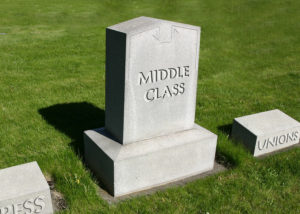
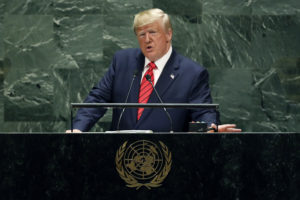
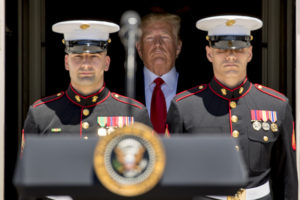
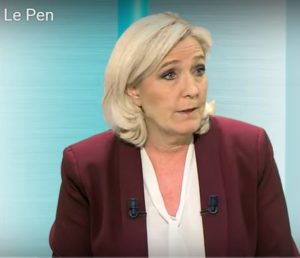


You need to be a supporter to comment.
There are currently no responses to this article.
Be the first to respond.